- Home
- Samuel Beckett
Watt Page 8
Watt Read online
Page 8
But he had not been long gone when he appeared again, to Watt. He stood sideways in the kitchen doorway, looking at Watt, and Watt saw the housedoor open behind him and the dark bushes and above them at a great distance something that he thought was perhaps the day again already. And as Watt fixed his eyes on what he thought was perhaps the day again already, the man standing sideways in the kitchen doorway looking at him became two men standing sideways in two kitchen doorways looking at him. But Watt, catching up his hat, held it before the lamp, that he might the better decide whether what he saw, through the housedoor, was really the day again already, or whether it was not. But even as he looked it was effaced, not abruptly, no, and not gently either, but by a firm unhurried hand, wiped away. Then Watt did not know what to think. So turning towards the lamp he drew it towards him, and turned down the wick, and blew down the chimney, until it was quite extinguished. But even then he was no whit better off than before. For if it was really day again already, in some low distant quarter of the sky, it was not yet day again already in the kitchen. But that would come, Watt knew that would come, with patience it would come, little by little, whether he liked it or not, over the yard wall, and through the window, first the grey, then the brighter colours one by one, until getting on to nine a.m. all the gold and white and blue would fill the kitchen, all the unsoiled light of the new day, of the new day at last, the day without precedent at last.
1 Much valuable space has been saved, in this work, that would otherwise have been lost, by avoidance of the plethoric reflexive pronoun after say.
2 What, it may be enquired, was the music of this threne? What at least, it may be demanded, did the soprano sing?
II
Mr Knott was a good master, in a way.
Watt had no direct dealings with Mr Knott, at this period. Not that Watt was ever to have any direct dealings with Mr Knott, for he was not. But he thought, at this period, that the time would come when he would have direct dealings with Mr Knott, on the first floor. Yes, he thought that time would come for him, as he had thought it had ended for Arsene, and for Erskine just begun.
For the moment all Watt’s work was on the ground floor. Even the first floor slops that he emptied, it was Erskine who carried them down, every morning, in a pail. The first floor slops could have been emptied, quite as conveniently, if not more conveniently, and the pail rinsed, on the first floor, but they never were, for reasons that are not known. It is true that Watt had instructions to empty these slops, not in the way that slops are usually emptied, no, but in the garden, before sunrise, or after sunset, on the violet bed in violet time, and on the pansy bed in pansy time, and on the rose bed in rose time, and on the celery banks in celery time, and on the seakale pits in seakale time, and in the tomato house in tomato time, and so on, always in the garden, in the flower garden, and in the vegetable garden, and in the fruit garden, on some young growing thirsty thing at the moment of its most need, except of course in time of frost, or when the snow was on the ground, or when the water was on the ground. Then his instructions were to empty the slops on the dunghill.
But Watt was not so foolish as to suppose that this was the real reason why Mr Knott’s slops were not emptied away on the first floor, as they could so easily have been. This was merely the reason offered to the understanding.
It was remarkable that no such instructions existed touching the second floor slops, that is to say, Watt’s slops, and Erskine’s slops. These, when they had been carried down, Erskine’s by Erskine, and Watt’s by Watt, Watt was free to dispose of as he pleased. But he was given nevertheless to understand that their commixture with those of the first floor, if not formally forbidden, was not encouraged.
So Watt saw little of Mr Knott. For Mr Knott was seldom on the ground floor, unless it was to eat a meal, in the dining-room, or to pass through it, on his way to and from the garden. And Watt was seldom on the first floor, unless it was when he came down to begin his day, in the morning, and then again at evening, when he went up, to begin his night.
Even in the dining-room Watt did not see Mr Knott, although Watt was responsible for the dining-room, and for the service there of Mr Knott’s meals. The reasons for this may appear when the time comes to treat of that complex and delicate matter, Mr Knott’s food.
This is not to say that Watt never saw Mr Knott at this period, for he did, to be sure. He saw him from time to time, passing through the ground floor on his way to the garden from his quarters on the first floor, and on his way back from the garden to his quarters, and he saw him also in the garden itself. But these rare appearances of Mr Knott, and the strange impression they made on Watt, will be described please God at greater length, at another time.
Callers were few. Tradesmen called, of course, and beggars, and hawkers. The postman, a charming man, called Severn, a great dancer and lover of greyhounds, seldom called. But he did sometimes, always in the evening, with his light eager step and his dog by his side, to deliver a bill, or a begging letter.
The telephone seldom rang, and when it did it was about some indifferent matter touching the plumbing, or the roof, or the food supplies, that Erskine could deal with, or even Watt, without troubling their master.
Mr Knott saw nobody, heard from nobody, as far as Watt could see. But Watt was not so foolish as to draw any conclusion from this.
But these fleeting acknowledgements of Mr Knott’s establishment, like little splashes on it from the outer world, and without which it would have been hard set to keep going, will it is to be hoped be considered in greater detail, later on, and how some were of moment to Watt, and how some were of none. In particular the appearance of the gardener, a Mr Graves, at the backdoor, twice and even three times every day, should be gone into with the utmost care, though there is little likelihood of its shedding any light on Mr Knott, or on Watt, or on Mr Graves.
But even there where there was no light for Watt, where there is none for his mouthpiece, there may be light for others. Or was there perhaps some light for Watt, on Mr Knott, on Watt, in such relations as those with Mr Graves, or with the fishwoman, that he left unspoken. That is by no means impossible.
Mr Knott never left the grounds, as far as Watt could judge. Watt thought it unlikely that Mr Knott could leave the grounds, without its coming to his notice. But he did not reject the possibility of Mr Knott’s leaving the grounds, without his being any the wiser. But the unlikelihood, on the one hand of Mr Knott’s leaving the grounds, and on the other of his doing so without exciting the general comment, seemed very great, to Watt.
On only one occasion, during Watt’s period of service on the ground floor, was the threshold crossed by a stranger, by other feet that is than Mr Knott’s, or Erskine’s, or Watt’s, for all were strangers to Mr Knott’s establishment, as far as Watt could see, with the exception of Mr Knott himself, and his personnel at any given moment.
This fugitive penetration took place shortly after Watt’s arrival. On his answering the door, as his habit was, when there was a knock at the door, he found standing before it, or so he realized later, arm in arm, an old man and a middleaged man. The latter said:
We are the Galls, father and son, and we are come, what is more, all the way from town, to choon the piano.
They were two, and they stood, arm in arm, in this way, because the father was blind, like so many members of his profession. For if the father had not been blind, then he would not have needed his son to hold his arm, and guide him on his rounds, no, but he would have set his son free, to go about his own business. So Watt supposed, though there was nothing in the father’s face to show that he was blind, nor in his attitude either, except that he leaned on his son in a way expressive of a great need of support. But he might have done this, if he had been halt, or merely tired, on account of his great age. There was no family likeness between the two, as far as Watt could make out, and nevertheless he knew that he was in the presence of a father and son, for had he not just been told so. Or were they not
perhaps merely stepfather and stepson. We are the Galls, stepfather and stepson — those were perhaps the words that should have been spoken. But it was natural to prefer the others. Not that they could not very well be a true father and son, without resembling each other in the very least, for they could.
How very fortunate for Mr Gall, said Watt, that he has his son at his command, whose manner is all devotion and whose mere presence, when he might obviously be earning an honest penny elsewhere, attests an affliction characteristic of the best tuners, and justifies emoluments rather higher than the usual.
When he had led them to the music-room, and left them there, Watt wondered if he had done right. He felt he had done right, but he was not sure. Should he not perhaps rather have sent them flying about their business? Watt’s feeling was that anyone who demanded, with such tranquil assurance, to be admitted to Mr Knott’s house, deserved to be admitted, in the absence of precise instructions to the contrary.
The music-room was a large bare white room. The piano was in the window. The head, and neck, in plaster, very white, of Buxtehude, was on the mantelpiece. A ravanastron hung, on the wall, from a nail, like a plover.

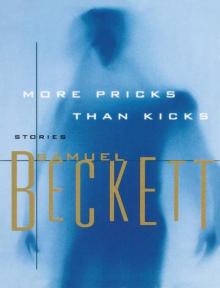 More Pricks Than Kicks
More Pricks Than Kicks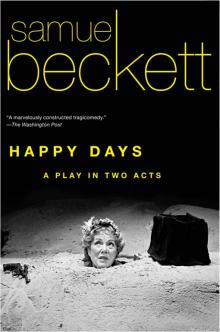 Happy Days
Happy Days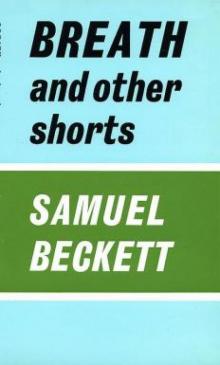 Breath, and Other Shorts
Breath, and Other Shorts Endgame & Act Without Words
Endgame & Act Without Words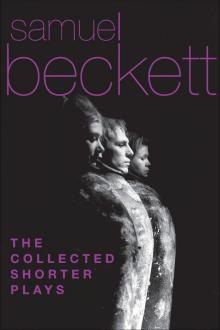 The Collected Shorter Plays of Samuel Beckett
The Collected Shorter Plays of Samuel Beckett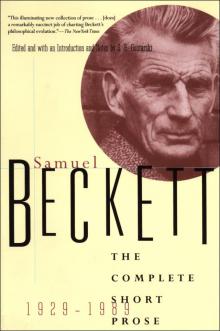 The Complete Short Prose, 1929-1989
The Complete Short Prose, 1929-1989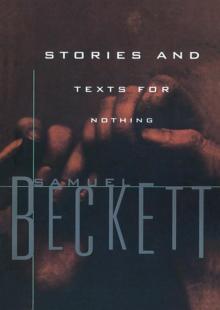 Stories and Texts for Nothing
Stories and Texts for Nothing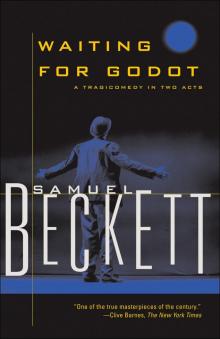 Waiting for Godot
Waiting for Godot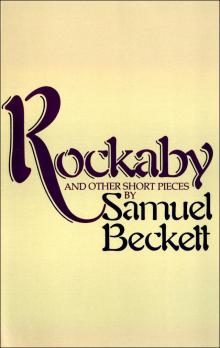 Rockaby and Other Short Pieces
Rockaby and Other Short Pieces First Love and Other Shorts
First Love and Other Shorts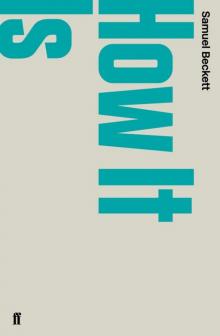 How It Is
How It Is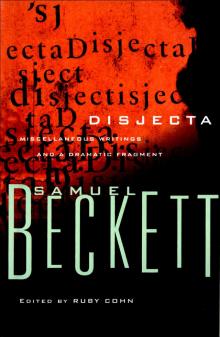 Disjecta: Miscellaneous Writings and a Dramatic Fragment
Disjecta: Miscellaneous Writings and a Dramatic Fragment Echo's Bones
Echo's Bones Texts for Nothing and Other Shorter Prose 1950-1976
Texts for Nothing and Other Shorter Prose 1950-1976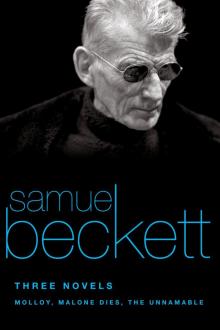 Three Novels
Three Novels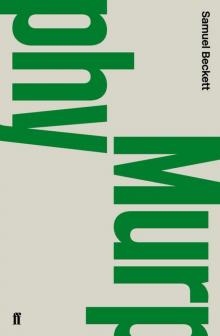 Murphy
Murphy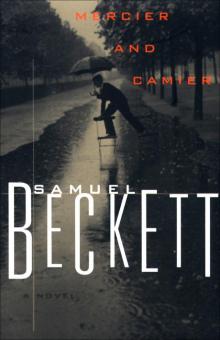 Mercier and Camier
Mercier and Camier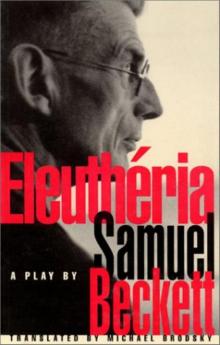 Eleuthéria
Eleuthéria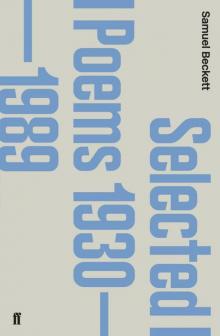 Selected Poems 1930-1988
Selected Poems 1930-1988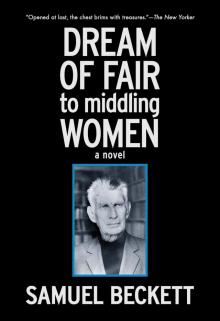 Dream of Fair to Middling Women
Dream of Fair to Middling Women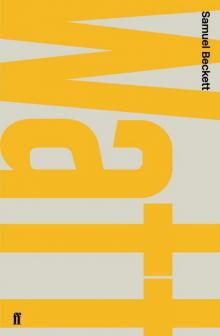 Watt
Watt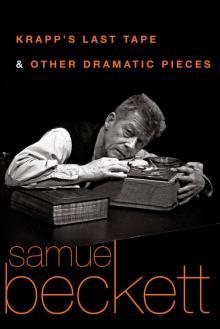 Krapp's Last Tape and Other Dramatic Pieces
Krapp's Last Tape and Other Dramatic Pieces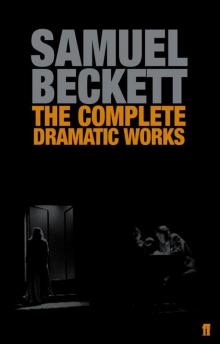 The Complete Dramatic Works of Samuel Beckett
The Complete Dramatic Works of Samuel Beckett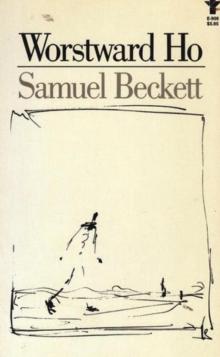 Worstward Ho
Worstward Ho Collected Poems in English and French
Collected Poems in English and French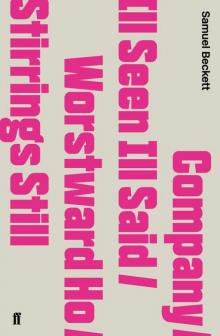 Company / Ill Seen Ill Said / Worstward Ho / Stirrings Still
Company / Ill Seen Ill Said / Worstward Ho / Stirrings Still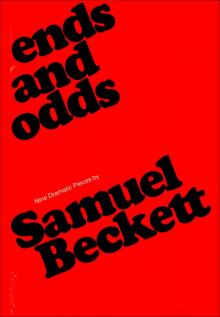 Ends and Odds
Ends and Odds Endgame Act Without Words I
Endgame Act Without Words I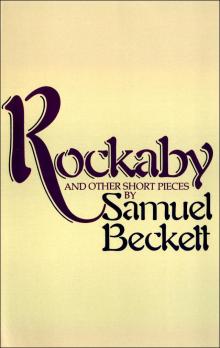 Rockabye and Other Short Pieces
Rockabye and Other Short Pieces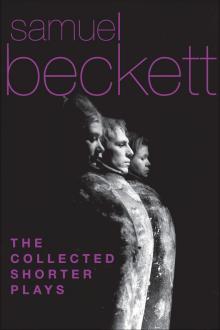 The Collected Shorter Plays
The Collected Shorter Plays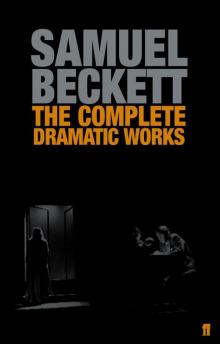 The Complete Dramatic Works
The Complete Dramatic Works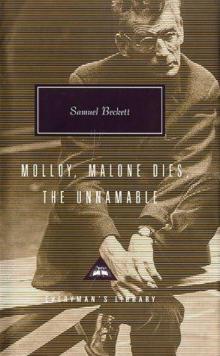 Three Novels: Malloy, Malone Dies, The Unnamable
Three Novels: Malloy, Malone Dies, The Unnamable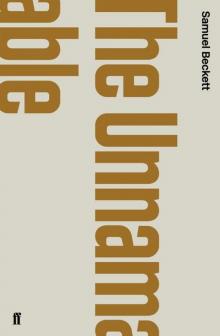 The Unnamable
The Unnamable